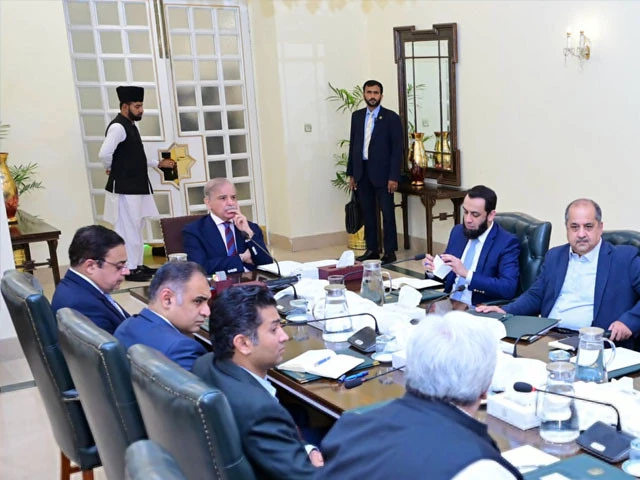Prime Minister Shehbaz Sharif said the expansion of Pakistan’s tax base and facilitating the burden of citizens with lower income was among the highest priorities of the government as he reviewed the Federal Board of Revenue’s (FBR) ongoing digitalisation and reform efforts.
Sharif, who was chairman of a high-level meeting on Monday, praised the launch of simplified URDU-linguistic tax returns and called for the creation of a helmet to help the public in return returns. “In tax reform, the focus must remain on the convenience of the ordinary man,” he said.
He instructed authorities to secure third-party validation for all FBR reforms to maintain transparency. The Prime Minister emphasized that digital, concise and database -connected tax returns would primarily benefit the employees.
A public awareness campaign will soon be launched to encourage a broader adoption of the new tax archiving system. “For the first time in the country’s history, the implementation of an AI-based tax assessment system is a great success,” Hesaid, who pays tribute to the efforts of the Ministry of Finance and FBR.
Sharif also instructed special support to be expanded to small and medium -sized companies (SMEs) for integration into the new digital billing system.
The meeting attended senior ministers, FBR officials and members of the financial team. Participants were informed of the digitization of invoicing, e-leases, loading and establishing a central command and control center.
According to FBR, bids at the control center will be completed within a short time when the system is expected to be operational in September. The centralized system aims to improve real -time data access and decision making.
Officials also highlighted the AI-based Advance Goods declaration system. Dealers can now submit declarations before shipments arrive, allowing for full exemption from advance tasks. The proportion of advance declarations is expected to increase from 3% to over 95%, which enables direct delivery from gates to factories.
زیراظ quals
م EMLIGHT
حکمت ے عوا اbolivity عو ham pic.twitter.com/5ri17vnr6m– PTV News (@ptvnewsofficial) July 14, 2025
Under the digital billing initiative, all companies must issue receipts through FBR’s online platform. Over 20,000 companies are expected to join the system in the coming months with 8,000 invoices worth RS11..6 billion issued in just one month.
The meeting was informed that returns for employees will go live on July 15, while other categories will be able to archive by July 30. URDU versions for employees will also be available.
FBR’s e-BILTY and Cargo Tracking Systems were also reviewed. These platforms, assisted by Turkish experts, will enable real -time trace of product movement and tax compliance and adapt Pakistan’s infrastructure with international standards.



